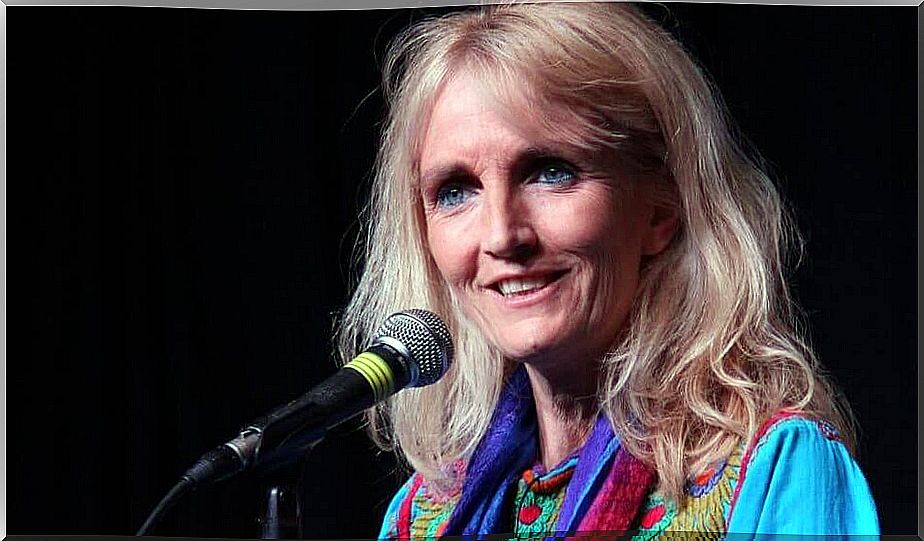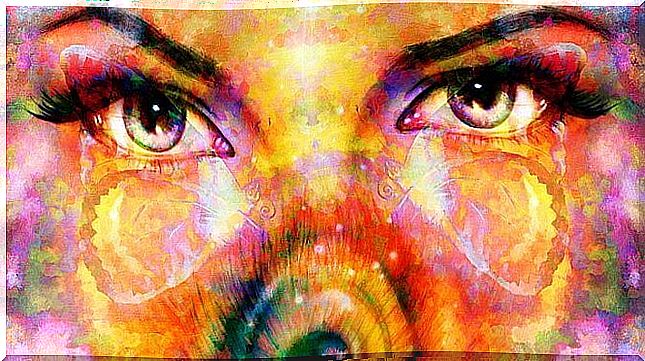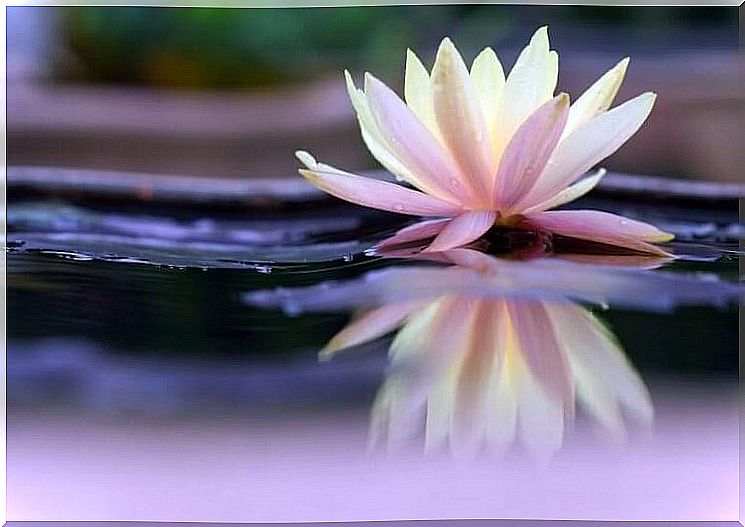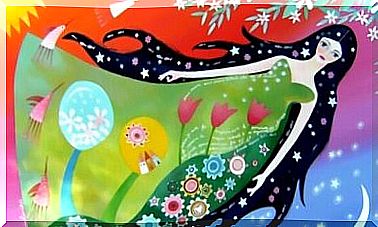7 Quotes From Suzanne Powell About Wisdom And Love That Will Inspire You

Suzanne Powell’s sentences are a breath for our personal development and our spirituality, where we are called for greater responsibility and greater awareness. This expert in the field of self-help and Zen philosophy transmits to us, with her words, a wonderful impulse of life allowing us to “renew ourselves”.
We all know that today if there is anything that abounds in this field – that of spiritual awakening and self-help – it is the gurus. However, we could say, without being afraid of making a mistake, that Suzanne Powell brings new winds and the good roots from which to learn, to grow, to assume certain strategies which can help us to manage our reality much better and to expand from the inside to the outside.
This Irish woman living in Madrid, trained in alternative therapies, devotes her life to training and gives solidarity courses through which she promotes a real change in human beings, an awakening. Thus, through books such as El reset colectivo (in French, “the collective reset”), she gives shape to what she calls a new ethical culture, within the framework of which each individual is capable of receiving and of his. turn to propagate this unconditional love with which to promote respect and a world more connected to the emotional, to the spiritual.
The message that is contained in each of Suzanne Powell’s sentences invites us to that, and these little touches that we let you discover in the rest of this article.

This is one of Suzanne Powell’s sentences that we find in one of her more recent books, Despertad, humanos, ha llegado la hora (in French, “Awake, humans, it’s time”). In the pages of this book remains imbued with the message which acts almost like a call to action, to urgency: Suzanne Powell invites us to change the place where we position ourselves in relation to time.
A future of harmony and balance awaits us, a new stage in the course of humanity in which we can drown if we act responsibly in the present moment, understanding that love is the key, that is this psychic and spiritual tendon from which to find sufficient strength to overcome the challenges that remain to us.
Most religions, as well as Eastern philosophies, have the ever more important figure of forgiveness in their theoretical corpus. Knowing how to forgive is not only an act that improves community life, it is also a form of liberation, development and expansion.
Thus, Suzanne Powell teaches us through her personal prism the importance of this act, of this practice in which to forgive is also to know how to accept what has happened, to learn from this event or this circumstance in order to move forward, in feeling more fulfilled, but also lighter.
This is a quote from Suzanne Powell that is undoubtedly worth remembering every day. Often, we spend a large part of our life training ourselves professionally. We accumulate the diplomas, technical and even psychological skills that allow us to be more productive in our professional environments.
However, in reality, none of these strategies will cause our happiness or even our personal development if we do not first cross this door: that of self-knowledge. Knowing how to connect to oneself is this bridge that will really lead us towards what we want, towards what we really want to achieve in our life by knowing where our limits and our real needs are.

When we think of Zen, it is common for us to think of anything related to its cultural aspect, such as martial arts, interior and garden decoration, etc. Suzanne Powell is a great reference in this field. In addition to being the president of the Zen Foundation in Spain and collaborating with different solidarity causes, she transmits to us the authentic essence of this Buddhist approach that can help us improve our life.
Zen is well-being, balance for the mind and the body. Being Zen means adopting a correct approach as well as a sense of responsibility to generate the right changes. Suzanne Powell offers us, for example, to learn to breathe, and to activate these “zen points” with which to balance our chakras.
In a world of haste where immediacy devours everything and where we often have the same tolerance for frustration as a 5 year old, learning to be patient is as important as being patient. to breathe.
This is undoubtedly one of Suzanne Powell’s most interesting sentences, in which she invites us not only to know how to accept certain situations, those that sometimes take us off course, in an anti-room of uncertainty, but also to know how to tolerate these moments with optimism and confidence.

How to deny it? We do it almost without realizing it; our mind very quickly judges behaviors, words, actions, people we know and above all, those we do not know. We judge because we need to establish a mental map that can allow us to evolve in our surroundings and our environment, a map classified by categories and with its corresponding labels.
What is this for? Suzanne Powell knows it well, with this type of behavior, where some get hurt and others hit back, where bad deeds are given and received, the only thing we manage to do is consolidate a world of selfishness. Nothing grows in this environment, humanity does not advance by putting on the front of others simple labels that we could rewrite, profile or even humanize. If we are destined to reach a future with greater harmony, we must start with ourselves: by being the best example.
Enjoying the present moment is undoubtedly one of the most recurring and used phrases these days. But are we really applying this principle, this pillar of personal development?
The truth is, no, not always. We do this because we are dragging an excess of the past and an excess of anxiety about the future. With this approach, the present does not fade away. Therefore, we are making a case for one of Suzanne Powell’s most valuable phrases: Appreciate the present, being ourselves with responsibility.

In conclusion, it is important to remember that it is not enough to just think and empathize with this set of ideas; we must act, try to apply all these tips in a real, felt and lived way each of these aspects to create a reality much closer, more loving and more generous.










